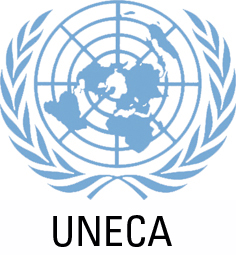Focal point
Location
P.O. Box 3001
Addis Ababa, Ethiopia
Established by the Economic and Social Council (ECOSOC) of the United Nations (UN) in 1958 as one of the UN's five regional commissions, ECA's mandate is to promote the economic and social development of its member States, foster intra-regional integration, and promote international cooperation for Africa's development.
Made up of 54 member States, and playing a dual role as a regional arm of the UN and as a key component of the African institutional landscape, ECA is well positioned to make unique contributions to address the Continent’s development challenges.
ECA’s thematic areas of focus are as follows:
- Macroeconomic Policy
- Regional Integration and Trade
- Social Development
- Natural Resources
- Innovation and Technology
- Gender
- Governance
Members:
Resources
Displaying 241 - 245 of 872Regional assessment studies on land policy in central eastern, north, southern and west Africa : synthesis report
This workshop took place from 27 to 29 March 2006. The discussions were informed by an issues/discussion paper. The meeting brought together representatives from African governments, regional economic communities, and civil society including farmers’ organizations, African private sector, centres of excellence and development partners.
Land policy in Africa: North Africa regional assessment
The countries in North Africa share an arid and semi-arid environment with high diversity: mountainous areas run alongside maritime areas and desert. Currently, urban dwellers in North Africa represent more than 50% of the population and are expected to be more than 60% by 2030. However, the urban system in North Africa is suffering urban primacy. The region is well known for its endowment in mineral deposits such as oil and gas. However, it is also known for being one of the poorest regions in the world in water resources.
Land policy in Africa: North Africa regional assessment
The countries in North Africa share an arid and semi-arid environment with high diversity: mountainous areas run alongside maritime areas and desert. Currently, urban dwellers in North Africa represent more than 50% of the population and are expected to be more than 60% by 2030. However, the urban system in North Africa is suffering urban primacy. The region is well known for its endowment in mineral deposits such as oil and gas. However, it is also known for being one of the poorest regions in the world in water resources.
Land policy in Africa: North Africa regional assessment
The countries in North Africa share an arid and semi-arid environment with high diversity: mountainous areas run alongside maritime areas and desert. Currently, urban dwellers in North Africa represent more than 50% of the population and are expected to be more than 60% by 2030. However, the urban system in North Africa is suffering urban primacy. The region is well known for its endowment in mineral deposits such as oil and gas. However, it is also known for being one of the poorest regions in the world in water resources.


